Connecting the Dots: Promise of first feast steamrolled by history
|
Published: 11-25-2023 7:00 AM
Modified: 11-27-2023 5:53 AM |
Here in the U.S. each fall season, Thanksgiving is a time we give thanks for the bounty and blessings of the year. Along with the traditional turkey, mashed potatoes, squash, homemade cranberry sauce and pumpkin pies, it is a moment to celebrate family and friends and the warmth of community coming together.
These thanks come harder this year. Writing a Thanksgiving column this year has been very difficult. It doesn’t feel enough to just “give thanks” this year. I’m wanting my thankfulness to be deeply rooted into the world to connect, include, and nourish others who are struggling in lives upended by poverty, drought, floods and fire, as well as the indescribable horror and loss caused by the global spread of militarism and violence.
I don’t need to give you the (long) list of sociopolitical conflicts and actual wars. We are given these mounting morbid messages every day via print, electronic media and the internet. The 2023 Global Peace Index report reveals a terrible surge in global conflicts, with pre-existing tensions predating even the significant Russian invasion of Ukraine, touted as the most significant conflict since World War II. Then there is the Israeli/Hamas horror show.
I’ve been reflecting upon U.S. participation in this spreading surge of global violence. If you are open to reading an accurate (updated) history of America, you will discover evidence that our own sociopolitical violence began shortly after Columbus supposedly “discovered” America.
In November 1620, the Mayflower deposited about 100 Pilgrims at the Wampanoag community of Patuxet, which was renamed New Plymouth by the newcomers. A year later, the English and Wampanoags enjoyed a three-day feast. For generations, Americans have celebrated that meal as the first Thanksgiving.
As traditions go, Thanksgiving seemed pretty secure in America, although the recent renaming of Columbus Day to Indigenous Peoples’ Day suggests that even once-sacred holidays can change.
The Columbus myth reigned in American culture until 1992, the 500th anniversary of his first voyage. That year, Native and other scholars mounted a campaign to redefine the holiday by emphasizing Columbus’ role in brutal conquest and enslavement. But this was not the first effort to redefine America’s origins.
Peter C. Mancall, in the Los Angeles Times, wrote that “In the 1820s and 1830s, a Pequot minister named William Apess took aim at what would become Thanksgiving — arguing that the nation needed to rethink the colonization of New England, and view it through Indigenous perspectives.
Article continues after...
Yesterday's Most Read Articles
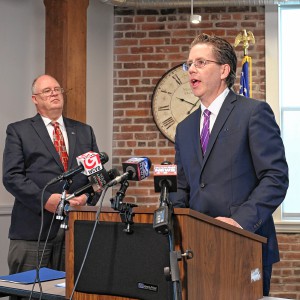 1989 homicide victim found in Warwick ID’d through genetic testing, but some mysteries remain
1989 homicide victim found in Warwick ID’d through genetic testing, but some mysteries remain
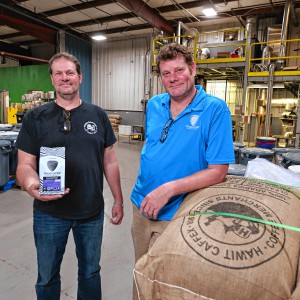 Fogbuster Coffee Works, formerly Pierce Brothers, celebrating 30 years in business
Fogbuster Coffee Works, formerly Pierce Brothers, celebrating 30 years in business
 Greenfield homicide victim to be memorialized in Pittsfield
Greenfield homicide victim to be memorialized in Pittsfield
 Real Estate Transactions: May 3, 2024
Real Estate Transactions: May 3, 2024
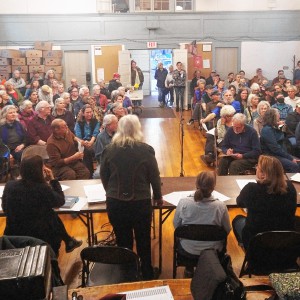 Battery storage bylaw passes in Wendell
Battery storage bylaw passes in Wendell
 As I See It: Between Israel and Palestine: Which side should we be on, and why?
As I See It: Between Israel and Palestine: Which side should we be on, and why?
What does it mean when a nation extracts a benign interpretation of the past from a tangled and often violent legacy of encounters and conflicts?” Mancall asked. Indigenous peoples’ experience of conquest and colonization is rooted in dispossession.
Isn’t that the same, seemingly unresolvable issue in the Palestinian/Israeli conflict that began after Israel declared its independence on May 14, 1948?
Apess was a leader in the Massachusetts Indigenous peoples’ battle to preserve their lands and to take greater control over their communities in an uprising known as the Mashpee Revolt of 1833-1834. The Mashpees “wanted their rights as men and as freemen,” he wrote.
Less than 20 years after the famous Plymouth feast, in the midst of a war in 1637, Pilgrims and their allies set a Pequot town on fire and shot those who tried to escape. They killed 400 to 700 on a single night, including children and elderly people. They captured Pequot survivors and shipped them to the Caribbean as slaves. Russia and Ukraine provide a parallel in this horrendous history.
Forty years later, Apess’ ancestor, Metacom, led multiple Indigenous communities to battle for their homelands in a conflict known as King Philip’s War. From 1675 to 1677, Indigenous and Colonial soldiers laid waste to each other’s communities, and colonists again bought and sold Indigenous captives, creating a market in enslaved bodies.
The colonists believed Metacom and his allies posed the most serious crisis they had ever faced. After Metacom died in Rhode Island on Aug. 12, 1676, English soldiers decapitated him, and colonists mounted his head on a post in Plymouth as a warning.
Looked at from the vantage points of 1637, 1676 and so many other moments in our country’s history, that three-day meal in 1621 was less a predictor of future goodwill among all Americans than a historic aberration. Thanksgiving may well survive for centuries, but educational programs like “The 1619 Project” have shown that it is not too late to offer a rethinking of that first Thanksgiving and the public’s broader understanding of slavery and American history.
“Connecting the Dots” by Greenfield resident John Bos is published every other Saturday in the Recorder. He is a longtime contributing writer for Green Energy Times and frequent op-ed contributor to other regional newspapers. Comments and questions are invited at john01370@gmail.com.

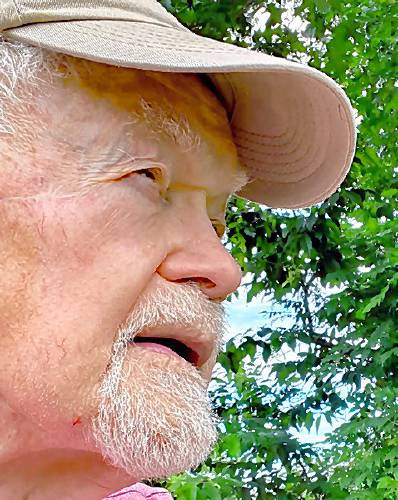
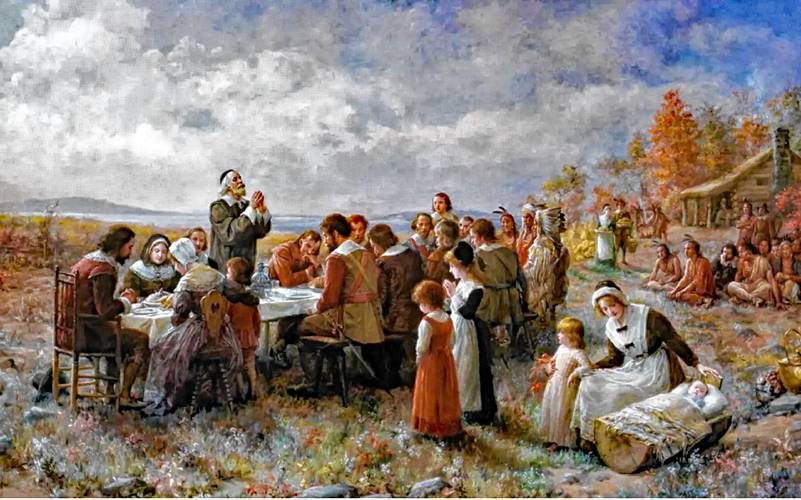
 Guest columnist Gene Stamell: We know what we know
Guest columnist Gene Stamell: We know what we know Michelle Caruso: Questions candidate’s judgment after 1980s police training incident
Michelle Caruso: Questions candidate’s judgment after 1980s police training incident Kathy Sylvester: Vote for expertise on May 6
Kathy Sylvester: Vote for expertise on May 6 Shirley and Mike Majewski: Vote for Blake Gilmore
Shirley and Mike Majewski: Vote for Blake Gilmore
